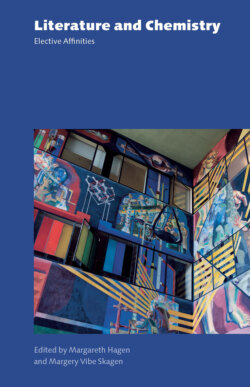Читать книгу Literature and Chemistry - Группа авторов - Страница 17
На сайте Литреса книга снята с продажи.
THE CHEMIST
ОглавлениеPrimo Levi graduated from the University of Turin in 1941 with a degree in chemistry, although the director of his theoretical dissertation was from the physics faculty, the only place he could find a professor willing to take him on. His main thesis was on so-called “Walden Inversions”, the inversion in certain chemical reactions of the ‘chiral’ asymmetric centres found in certain molecules.1
This was 1941 in Fascist Italy and the war was already raging across Europe. Levi struggled to get his dissertation and his degree accepted because he was Jewish, in a state which in 1938 had implemented a legislative anti-Semitism that was quite the equal of that of its northern ally, Nazi Germany. Among many other restrictions, Jews were banned from universities, unless like Levi they had already begun their course by 1938.2 As Levi recalled wryly in his autobiography, The Periodic Table:
I had in my drawer an illuminated parchment on which was written in elegant characters that on Primo Levi, of the Jewish race, had been conferred a degree in Chemistry summa cum laude. It was therefore a dubious document, half glory and half derision, half absolution and half condemnation. It had remained in that drawer since July 1941, and now we were at the end of November. The world was racing to catastrophe, and around me nothing was happening. The Germans had spread like a flood in Poland, Norway, Holland, France, and Yugoslavia and had penetrated the Russian steppes like a knife cutting through butter. The United States did not move to help the English, who remained alone. I could not find work and was wearing myself out looking for any sort of paid occupation; in the room next to mine, my father, prostrated by a tumour, was living his last months. (The Periodic Table, pp. 64-5)3
Less than three years later, Levi was arrested as an anti-Fascist partisan, identified as a Jew, and deported by train from a holding camp in central Italy to Auschwitz. He survived nearly a year, from February 1944 to January 1945, in Auschwitz-III Monowitz, and his long journey home took the best part of another year; he reached Turin in late 1945.
In 1947, he published the first edition of what is now recognised as one of the greatest historical documents of that war and of all the horrors of the twentieth century, If This is a Man.4 After 1947, for thirty years Levi combined a career as a part-time writer and speaker with that of a full-time chemist and manager in a paint factory near Turin.
